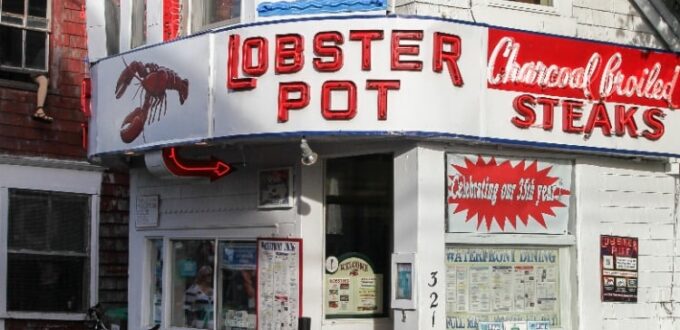After yet another long discussion that showed members of the Massachusetts Gaming Commission to be on different pages, the agency Thursday delayed an anticipated vote on a regulation surrounding the sports betting application process.
The General Sports Wagering Application Requirements, Standards, and Procedures proposed rule deals with how operator applications would be handled, including if or how applicants would be entitled to “cure deficiencies” in applications. At different points during the meeting, commissions noted that they had spent more than an hour talking about “how operators won’t get it right,” and how not allowing for a time frame to correct deficiencies would put smaller operators at a disadvantage.
“The stakes are way too high to reject an application because of a simple human error,” Commissioner Nakisha Skinner said. She added that just because a stakeholder submits an “incomplete application,” it doesn’t mean it can’t “put its best foot forward.”
The rest of the commission ultimately agreed, at least in principle, forcing the reworking of the regulation, which will also include an extra week past the Nov. 21 deadline for applicants to submit “multi-jurisdictional personal history disclosure forms.” These disclosure forms include information helping a regulator do background checks on principals in wagering companies.
Process has been arduous
The MGC for several weeks has struggled with setting a go-live timeline and resolving how to handle applications. Major operators are well-versed in the application process and say that there is always a back-and-forth between regulators and applicants during the process. It appears the MGC will insert language to allow applicants 14 days to correct deficiencies or provide supplemental information once applications are filed. Lawyers for the agency said they could not rewrite the regulation Thursday, but they will have it ready for a vote next week.
ICYMI, here is what went down before today’s Massachusetts Gaming Commission meeting: https://t.co/cBdE4jCWBd
— SBC Americas (@sbc_americas) October 20, 2022
At the heart of the issue is timing. When the MGC decided Oct. 7 on a “late January” launch for brick-and-mortar sportsbooks and “early March” for digital platforms, it required more than 10 hours of debate over two days and was not a unanimous vote. Discussion ahead of the vote showed that commissioners were split and staff felt the timeline was aggressive. To address that, the commission agreed on the schedule with the caveat that things could change.
What seems odd about the struggles is that the MGC previously licensed three casinos in the state — Encore-Boston Harbor, MGM-Springfield, and Plainridge Park — and so is familiar with the gaming licensing process.
Massachusetts Gov. Charlie Baker signed a legal wagering law on Aug. 10, and the MGC has been working ever since to achieve an early 2023 launch. Now that the application deadline has been set, it’s clear the timeline is aggressive. Most jurisdictions allow 90 days to approve applications once they are received, but MGC staff will have about 60 days (and that’s during the Christmas and New Year’s holiday season) to approve brick-and-mortar applications.
29 operators complete ‘scoping surveys’
The MGC announced Wednesday that it had received 29 scoping surveys from prospective licensees, including 23 from potential applicants seeking Category 3 or stand-alone mobile licenses. Under the law, Massachusetts can have a maximum of seven untethered digital platforms, so the process will be competitive. Among those that submitted scoping surveys for Category 3 licenses are Boston-based DraftKings and national operators Bally Bet, Caesars, Fanatics, FanDuel, and PointsBet.
The 29 operators that met the Oct. 17 survey deadline are the only ones that can now move forward with applications. Vendors and suppliers will work on a different timeline that has not yet been announced.
Massachusetts law allows for up to 16 digital platforms. Each of the three casinos are entitled to two digital partners, the state’s three horse racetracks/simulcast facilities can have a single digital partner, and seven stand-alone licenses will be available. Each of the casinos and racetracks are also entitled to one physical sportsbook.
BetMGM, PENN Entertainment (Barstool Sportsbook), and WynnBET, all of which already have access for both retail and digital platforms via existing casinos in the state, applied for Category 1 (retail/digital licenses) licenses via their retail locations and Category 3 (digital stand-alone licenses) licenses on their own.
In addition, Connecticut-based Mohegan Digital, which operates the Mohegan Sun and is partnered with FanDuel for digital betting in neighboring Connecticut, and daily fantasy company Underdog Sports Wagering were among the applicants. On Thursday, Underdog, the third-biggest daily fantasy operator in the U.S., was awarded its first provisional wagering license in Colorado.
Underdog disclosed a $35 million Series B funding round in July and now is poised to launch mobile sports betting in 2023 in both Colorado and Ohio, while also planning for operations in Massachusetts.
(via @markasaxon) https://t.co/smWgBGDy7G
— Sports Handle (@sports_handle) October 20, 2022
There are also some unique applicants, including EasyWin, a Nigerian-based sportsbook, casino, and lotto platform, and Fanlogic, which appears to be a pay-per-head site accepting cryptocurrency.
New faces will be working on licensing
Early in the meeting, the MGC welcomed Kevin Mullally from GLI, which it contracted with earlier this month to handle regulations, internal controls, technical standards, and other parts of the licensing process. GLI has worked with the MGC in the past on casino issues.
The MGC’s new licensing director, Karalyn O’Brien (no relation to Commissioner Eileen O’Brien), was also introduced. O’Brien came to the MGC from the state’s Office of Public Safety and Inspections. She’s also a former assistant district attorney.

No Comments Yet